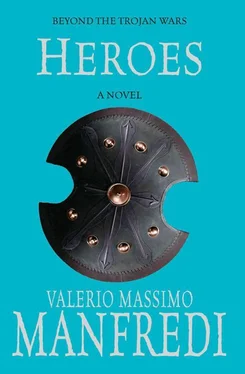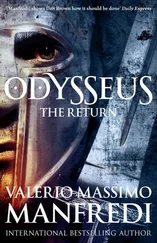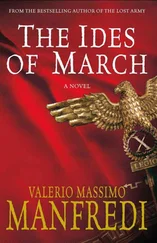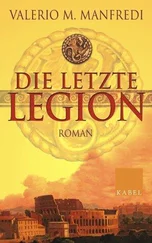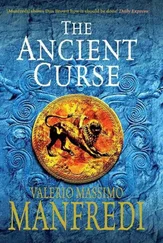Valerio Manfredi - Heroes
Здесь есть возможность читать онлайн «Valerio Manfredi - Heroes» весь текст электронной книги совершенно бесплатно (целиком полную версию без сокращений). В некоторых случаях можно слушать аудио, скачать через торрент в формате fb2 и присутствует краткое содержание. Жанр: Исторические приключения, на английском языке. Описание произведения, (предисловие) а так же отзывы посетителей доступны на портале библиотеки ЛибКат.
- Название:Heroes
- Автор:
- Жанр:
- Год:неизвестен
- ISBN:нет данных
- Рейтинг книги:3 / 5. Голосов: 1
-
Избранное:Добавить в избранное
- Отзывы:
-
Ваша оценка:
- 60
- 1
- 2
- 3
- 4
- 5
Heroes: краткое содержание, описание и аннотация
Предлагаем к чтению аннотацию, описание, краткое содержание или предисловие (зависит от того, что написал сам автор книги «Heroes»). Если вы не нашли необходимую информацию о книге — напишите в комментариях, мы постараемся отыскать её.
Heroes — читать онлайн бесплатно полную книгу (весь текст) целиком
Ниже представлен текст книги, разбитый по страницам. Система сохранения места последней прочитанной страницы, позволяет с удобством читать онлайн бесплатно книгу «Heroes», без необходимости каждый раз заново искать на чём Вы остановились. Поставьте закладку, и сможете в любой момент перейти на страницу, на которой закончили чтение.
Интервал:
Закладка:
‘It’s Pyrrhus,’ said the king, rising to welcome the guest.
The son of Achilles, decked in his father’s armour, stood for a moment at the open door, filling the space completely with his bulk. His adolescent’s face contrasted strangely with his wide shoulders, his powerful muscles, his disquieting gaze. There was something unnatural about him, as though he had not been born of woman. As though the god Hephaestus had fashioned a soulless exterminator in his forge.
Menelaus greeted him and broke some bread for him as well. ‘We are all here now,’ he said then. ‘The council may begin.’ A pale reflection entering the window at that moment announced the birth of a new day.
Pyrrhus spoke immediately, before the king had invited him to do so. ‘Why do we need a battle plan? We will wait for them to come out and annihilate the lot. If they don’t come out, we’ll scale the walls and burn down the city.’ Orestes looked at him and was gripped by a feeling of deep aversion, almost repugnance, for that creature capable only of blind violence, but he said nothing.
‘It’s not so simple,’ said Menelaus. ‘We know that there’s an Argive contingent marching towards us, and we cannot rule out Cretan ships landing at some hidden spot. As far as the city is concerned, I don’t want to destroy it. Hippasus has told me that many of the inhabitants have remained faithful to the memory of my brother. I believe we should detach a contingent to cover us from behind in case the Argive army should turn up unexpectedly as we are attacking Aegisthus’s forces. I was thinking that Prince Orestes could command it.’
Pyrrhus laughed derisively. ‘You’re right,’ he said, ‘that way he can’t get into any trouble. I can handle the Mycenaeans alone. I have to earn your daughter’s bed somehow, don’t I?’
Orestes blazed with indignation and jumped to his feet, drawing his sword. ‘I fear no danger!’ he said. ‘And I don’t fear you, even if you are the bastard son of a demigod!’
Pyrrhus also rose to his feet. ‘Then come outside,’ he said, ‘and we can solve the matter immediately. We don’t need you anyway.’
Orestes was heading towards the door, but Menelaus barred their way. ‘That’s enough!’ he thundered. ‘Woe betide an army divided before its first battle! No matter how strong the heroes who lead it are, it is destined to be destroyed, and its leaders with it.’ The two princes stopped cold. ‘The Achaeans have suffered tremendous grief for the ire of your father, don’t you know that?’ he said to Pyrrhus. ‘Do you know how many generous young men were mown down in the fields of Ilium because of that murderous quarrel? How much remorse, how many tears were shed? When your father saw the mangled body of Patroclus, his corpse immobile in the stiffness of death, he would have given anything to have repressed his wrath while he was still in time, to have never abandoned the army to the fury of Hector. Now eat the bread that I have had baked in this house, so that the bond of hospitality, sacred in the eyes of the gods, may unite you!’
Pisistratus handed some bread to both. ‘The king is right,’ he said. ‘This challenge is ill-considered. There will be glory for everyone on the battlefield today. You, Pyrrhus, will be sufficiently rewarded by marrying the daughter of Helen, whom every Achaean prince would want as his bride. There will be no slaughter of the vanquished nor plunder, for this is a war between brothers, between people of the same blood. Thebes was cursed and then destroyed for having permitted the sacrilegious duel between Eteocles and Polynices, sons of the same mother and of the same father. If this were to happen here, the gods would curse us and there would be no more peace for our land.’
The two youths took the bread they had been given but barely touched it to their lips, and repressed their anger. It was clear to all that the challenge had only been deferred. The king allowed silence to fall over that gesture for several long moments, then began to speak again in a firm, commanding voice.
‘So, Pyrrhus will draw his phalanx up at the centre, in front of the city gates, while Orestes will remain at the rear with a squadron of chariots to prevent an attack from behind. I will draw up to the right, along with Pylades’s Phocians, and Pisistratus will position his men to the left. I believe that Aegisthus will come out to fight. Over these past years, the city has extended outside of the walls. Many of the elders have requested that these houses and properties not be abandoned to destruction. Hippasus’s sons will signal with the horns when I give the order to attack. Now return to your men, and may the gods assist us.’
Pyrrhus left first; he got into his chariot and raced off towards the north in the direction of the hills. Pisistratus followed soon after, but before stepping aboard his chariot next to the driver, he said: ‘Take care, Orestes. He provoked you deliberately, certain that you would react. That’s a very bad sign. But don’t think about it now. Today we must win.’ He rode off as a veiled sun rose over the mountains. Menelaus, behind them, heard those words with anguish, and his heart was sickened by dark foreboding. He feared that sooner or later Orestes would accept the challenge of the invincible son of Achilles and that he would succumb.
Prince Pylades approached Orestes and said: ‘Pisistratus is on your side. This is important. Whatever Pyrrhus has in mind, he knows that everyone will be against him. Stay away from him, do not let yourself be provoked. Do not play his game.’ And then, when they were in the middle of the courtyard, ready to take their separate ways, Pylades continued in a low voice: ‘It’s evident that the king is greatly afflicted by this; he thinks he made a grave mistake considering Pyrrhus indispensable for the success of this endeavour and asking for his alliance. Say something to hearten him: he must not have doubts and regrets passing through his thoughts today, as he does battle. He must have only revenge on his mind. Farewell, my friend. This evening it will all be done.’
Orestes turned then towards Menelaus and he smiled: ‘Do not worry yourself, uncle. He’s just a boastful boy, and we’re all excited at the eve of the battle. He has already been in combat, while for me this will be the first time on an open field. He merely wanted to lord it over me. That’s all.’
The king shook his head. ‘I am worried,’ he said, ‘I am afraid that this war will generate more bereavement, more sorrow without end. Blood will have blood.’
‘You are right there, uncle: the blood of my father and his comrades must be avenged. Remember that you are Menelaus the Atreid, shepherd of armies. No one can stand up to you in the land of the Achaeans.’ He jumped on to his chariot and flew off towards the south in a cloud of dust. Menelaus remained alone in the middle of the courtyard watching the sun rise slowly in the milky sky. The sheep bleated behind him as their keeper led them out of the fold. The king looked at him, and for a moment wished he were like him, a man of no import who thinks only of finding food for his dinner.
Pyrrhus assembled his Epirotes, lined them up in a column and began to descend towards the plain. Automedon held the reins of his war chariot. Anchialus approached him. ‘You will allow me to speak with King Menelaus? You promised me, remember?’
Pyrrhus regarded him with an ambiguous smile, then gestured to his guards. ‘Keep him here at camp until the battle is finished and you see me return. I don’t trust him; he might be spying for our enemies. No one has ever seen him before, no one knows where he comes from.’
Anchialus struggled as two of the guards led him away to tie him with a rope to a pole at the centre of the camp. He shouted: ‘Man of no honour and no word! You are not the son of Achilles, you are a bastard!’
Читать дальшеИнтервал:
Закладка:
Похожие книги на «Heroes»
Представляем Вашему вниманию похожие книги на «Heroes» списком для выбора. Мы отобрали схожую по названию и смыслу литературу в надежде предоставить читателям больше вариантов отыскать новые, интересные, ещё непрочитанные произведения.
Обсуждение, отзывы о книге «Heroes» и просто собственные мнения читателей. Оставьте ваши комментарии, напишите, что Вы думаете о произведении, его смысле или главных героях. Укажите что конкретно понравилось, а что нет, и почему Вы так считаете.
